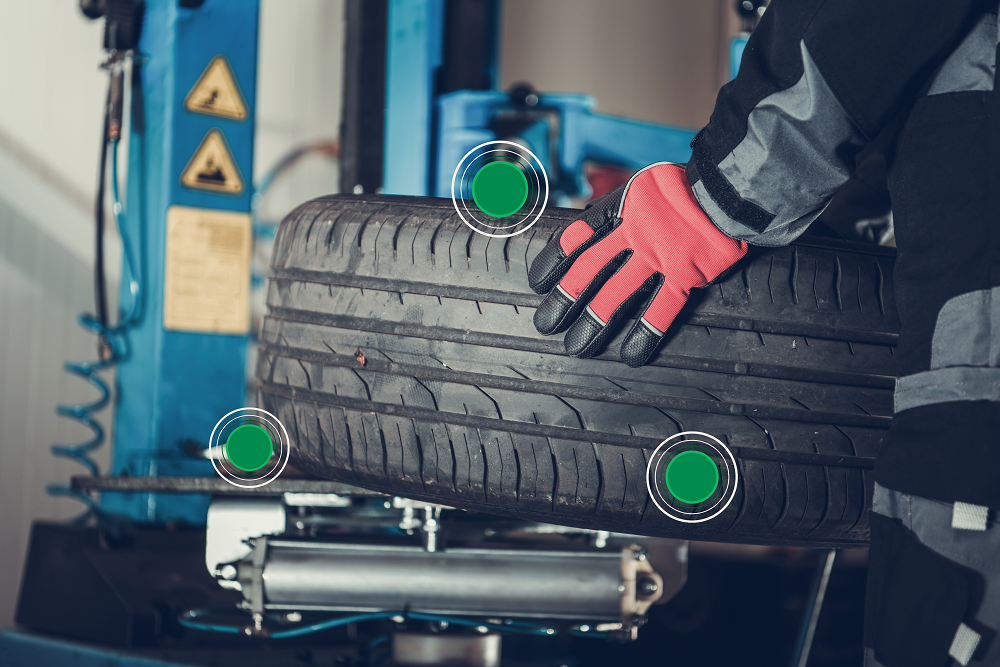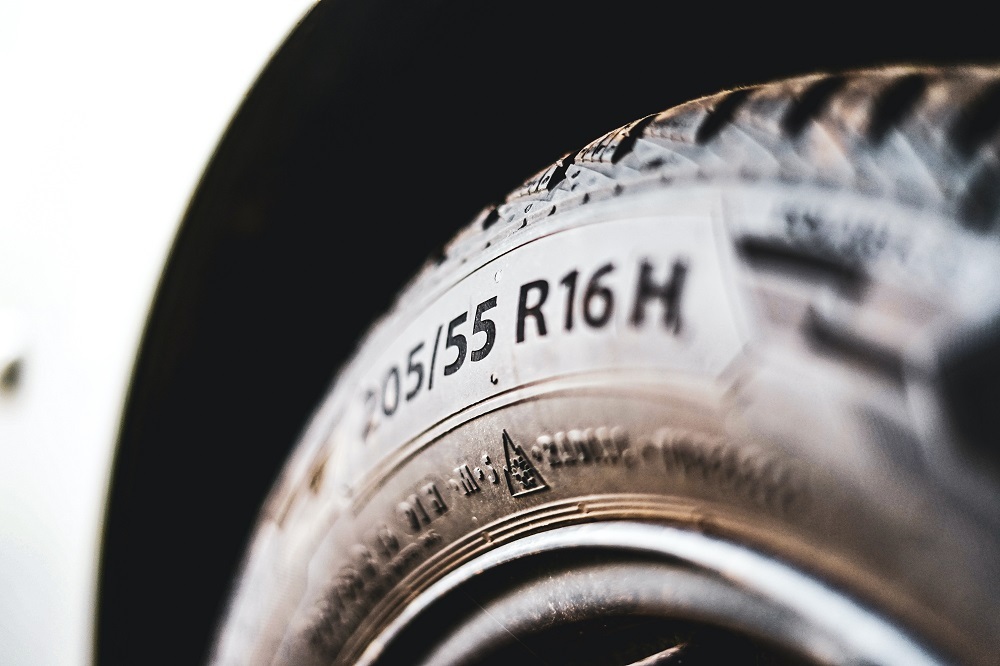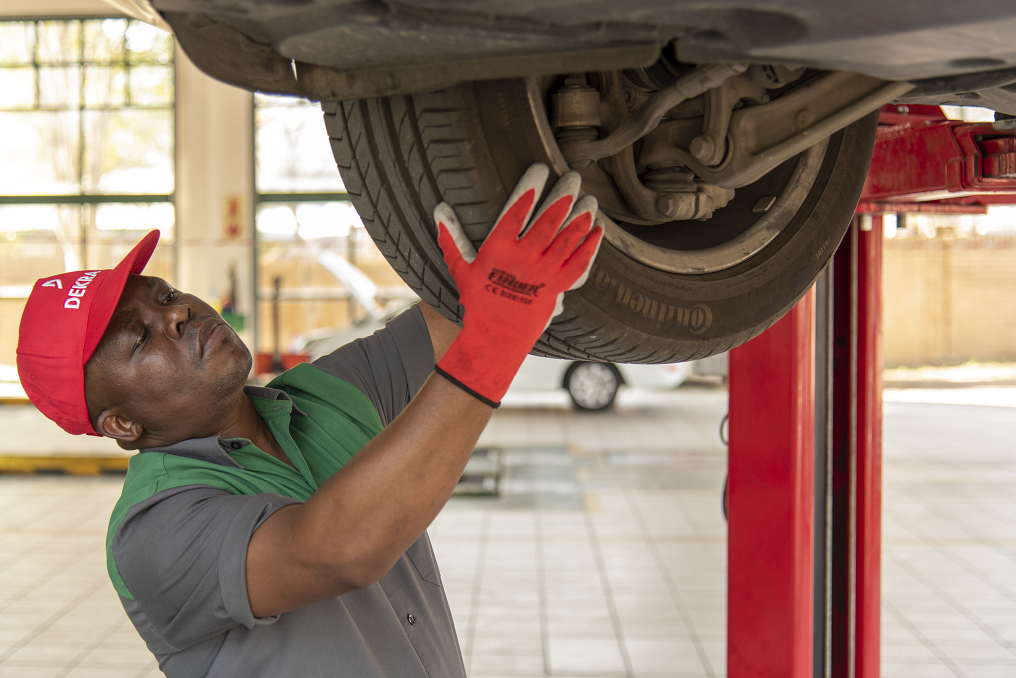
Photo: Welcomia via Canva
Buying new tyres? Here's how to choose the right ones
Buying new tyres can be a daunting task for many people, especially those not familiar with the different types and brands on the market. There are many things to consider when making this important purchase, so let's take a look at eight things to consider when it's time for new tyres. Not sure if your tyres need to be replaced? No worries. The condition of your tyres is one of the many things we check when you bring your vehicle in for a DEKRA Multi-Point Check. Book your car in for a check-up at your closest DEKRA branch today.
Let's dive into 8 things to keep in mind when buying new tyres.
1. Tyre Size
This is a crucial aspect because the effects from buying the wrong size can be costly. Tyre size is indicated by a combination of numbers and letters on the side of the tyre, for example 205/55 R16, which represents the width, aspect ratio, construction, and diameter. These numbers and letters have a significant impact on the performance, safety, and handling of your vehicle.
Mismatching the tyre size from the original specifications can lead to several problems. Firstly, using a tyre with a different width can affect the stability of the vehicle and cause it to become more prone to skidding or hydroplaning. Secondly, changing the aspect ratio can affect the ride height of the vehicle, which can lead to a change in the alignment and suspension. This can cause problems with steering, handling, and braking, making the vehicle less safe to drive.
The vehicle's overall balance can also be affected if the construction or diameter is mismatched. This can then lead to an uneven weight distribution, which can potentially damage the suspension and steering components. In extreme cases, it can even cause damage to the wheels and rims, leading to further expenses.

Photo credit: Frank Albrecht on Unsplash
2. Load Capacity
The load capacity of a tyre refers to the maximum weight it can safely carry. When you're buying new tyres, it's essential to choose ones with the right load capacity for your car and its capabilities. If the load capacity is lower than the weight of your car and its load, it will increase the risk of a tyre failure or blowout, which can be dangerous when driving. The load capacity of a tyre is indicated by its load index, which is a number that corresponds to a specific weight. Before purchasing new tyres, check your car's owner manual, contact the manufacturer, or brand dealership to find out the correct load capacity for your vehicle. Tyre sellers will also be able to assist you with this. It's essential to ensure that the new tyres you choose have the right capacity to provide the best performance and safety.
3. Speed Rating
The speed rating determines the maximum speed a tyre can safely sustain without getting damaged or losing its grip on the road. It is represented by a letter that ranges from A to Z, with A being the lowest and Z being the highest speed rating.
If you regularly drive at high speeds or use your car for performance driving, you need to choose a tyre with a higher speed rating. On the other hand, if you use your car for commuting or running errands, a tyre with a lower speed rating may suffice.
It's crucial for your safety to ensure that the speed rating of the new tyre is suitable for your driving style and the intended use. Tyres that are not rated for high speeds can overheat and cause a blowout, leading to a serious accident. Similarly, choosing a tyre with a high speed rating for a car that will not reach high speeds can result in an unnecessarily high price while also causing increased wear and tear on the tyre.
4. Wet Grip
Wet grip is a measurement of a tyre's ability to maintain traction on wet roads. It is an important factor to consider when purchasing new tyres because it directly affects the vehicle's handling and braking performance in wet weather conditions. A tyre with a good wet grip rating will provide better traction and stability on wet roads.

Photo credit: Omar Ramadan on Pexels
5. Terrain
It's important to consider the terrain you'll be driving on because different tyres are designed to perform optimally in different environments. If you mostly drive on highways, you should opt for tyres that are designed for high-speed stability and fuel efficiency. If you plan to drive off-road, you'll want tyres designed for traction in rough territory and mud. All-season tyres are a good option if you drive on a variety of terrains, as they offer a good balance of performance in various conditions. However, it's important to note that all-season tyres may not perform as well as specialised tyres in extreme conditions. Choosing the right tyre can improve handling, safety, and fuel efficiency.
6. Price
The cost of a tyre will depend on its brand, size, and quality. Cheap tyres may be more affordable, but they might not last as long or provide the same level of performance as more expensive versions. On the other hand, high-quality tyres are typically more expensive but provide better handling, traction, and durability. It is important to consider your driving habits, climate conditions, and vehicle usage when determining what type of tyre is best for you and your budget.
7. Brand
When purchasing new tyres, it is essential to select a reputable brand that has a solid reputation for producing high-quality, reliable, and high-performing tyres. A reputable brand will have invested in extensive research and development to produce innovative technology and materials that provide superior handling, braking, traction, and stability. Choosing a well-established brand also makes it easier to find replacements and technical support if needed.
8. Warranty
When buying new tyres for a car, the warranty offered is an important factor to consider as it provides peace of mind and protection against defects or problems. It is essential to research and compare different tyre brands and their warranty options to determine the best for your needs. Some offer limited warranties for a set number of kilometres or years while others offer lifetime warranties. It is important to read the fine print and understand the terms and conditions of the warranty before making a purchase, as some may only cover specific issues or require regular maintenance to keep the warranty valid. Choosing a tyre with a strong warranty ensures your investment is protected and provides peace of mind while driving.

Buying new tyres is a crucial decision that should not be taken lightly. From tyre size to speed rating and wet grip, there are several important factors to consider before making this purchase. So next time you need to replace your tyres, keep these factors in mind and drive with confidence. Are you unsure about the current state of your tyres? Book a Multi-Point Inspection with DEKRA and we'll have a look at your tyres as well as 34 other key points of your vehicle.